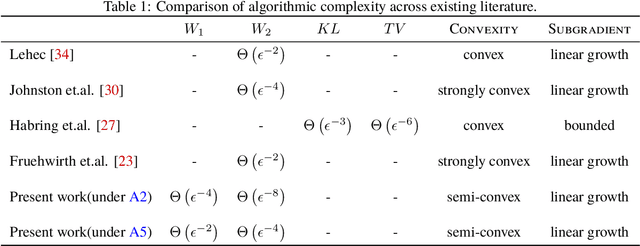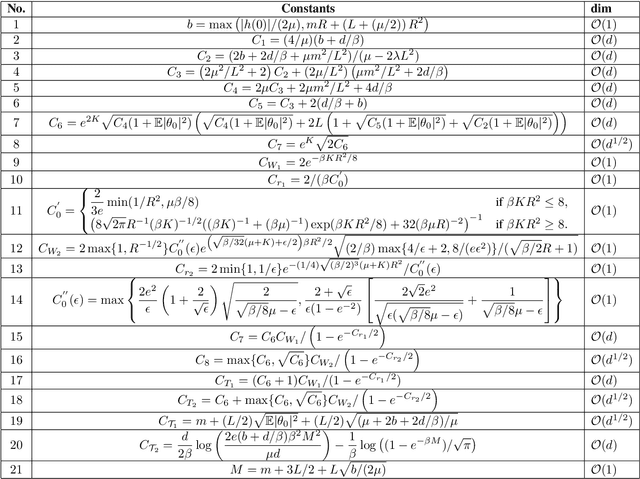Nikolaos Makras
The Performance Of The Unadjusted Langevin Algorithm Without Smoothness Assumptions
Feb 05, 2025

Abstract:In this article, we study the problem of sampling from distributions whose densities are not necessarily smooth nor log-concave. We propose a simple Langevin-based algorithm that does not rely on popular but computationally challenging techniques, such as the Moreau Yosida envelope or Gaussian smoothing. We derive non-asymptotic guarantees for the convergence of the algorithm to the target distribution in Wasserstein distances. Non asymptotic bounds are also provided for the performance of the algorithm as an optimizer, specifically for the solution of associated excess risk optimization problems.
Taming the Interacting Particle Langevin Algorithm -- the superlinear case
Apr 03, 2024Abstract:Recent advances in stochastic optimization have yielded the interactive particle Langevin algorithm (IPLA), which leverages the notion of interacting particle systems (IPS) to efficiently sample from approximate posterior densities. This becomes particularly crucial within the framework of Expectation-Maximization (EM), where the E-step is computationally challenging or even intractable. Although prior research has focused on scenarios involving convex cases with gradients of log densities that grow at most linearly, our work extends this framework to include polynomial growth. Taming techniques are employed to produce an explicit discretization scheme that yields a new class of stable, under such non-linearities, algorithms which are called tamed interactive particle Langevin algorithms (tIPLA). We obtain non-asymptotic convergence error estimates in Wasserstein-2 distance for the new class under an optimal rate.
 Add to Chrome
Add to Chrome Add to Firefox
Add to Firefox Add to Edge
Add to Edge